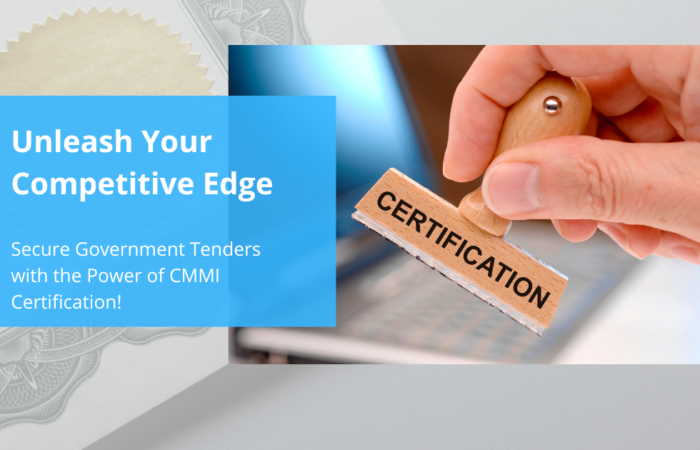Introduction
In The Realm Of Process Improvement And Quality Management, Capability Maturity Model Integration (CMMI) Stands Out As A Vital Framework For Achieving Operational Excellence. CMMI Certification Provides Organizations With A Structured Approach To Enhance Their Processes, Improve Performance, And Drive Continuous Improvement. This Article Delves Into Cmmi Certification, Explaining Its Significance, Benefits, And The Process For Achieving It. It Also Outlines Strategies For Leveraging CMMI To Enhance Business Processes And Foster Organizational Growth.
What Is CMMI Certification?
Overview Of CMMI
Capability Maturity Model Integration (CMMI) Is A Comprehensive Model Developed By Carnegie Mellon University’s Software Engineering Institute (SEI). It Provides A Framework For Organizations To Improve Their Processes And Performance Across Various Domains, Including Software Development, Services, And Product Manufacturing. CMMI Is Designed To Guide Organizations In Establishing Effective Processes, Managing Risks, And Delivering High-Quality Products And Services.
CMMI Certification Is Divided Into Five Maturity Levels, Each Representing A Different Stage Of Process Maturity:
- Level 1: Initial – Processes Are Unpredictable, Poorly Controlled, And Reactive. Success Is Heavily Dependent On Individual Effort And Heroics.
- Level 2: Managed – Processes Are Planned, Documented, And Executed According To Established Policies. While Managed, They Remain Reactive And Focus On Individual Projects.
- Level 3: Defined – Processes Are Well-Characterized, Documented, And Standardized Across The Organization. They Are Proactive And Integrated Into The Organization’s Overall Framework.
- Level 4: Quantitatively Managed – Processes Are Measured And Controlled Using Statistical Techniques. Performance Metrics Are Employed To Manage Processes And Ensure They Meet Quality Standards.
- Level 5: Optimizing – Focus Is On Continuous Process Improvement Through Incremental And Innovative Advancements. The Organization Strives For Continual Refinement And Perfection Of Processes.
Importance Of CMMI Certification
CMMI Certification Provides A Structured Approach For Organizations To Achieve Process Excellence. It Helps In:
- Improving Efficiency: Streamlining And Standardizing Processes To Enhance Operational Efficiency.
- Enhancing Quality: Ensuring Consistent And High-Quality Outputs By Adhering To Well-Defined Standards.
- Managing Risks: Proactively Identifying And Mitigating Risks To Prevent Project Failures And Operational Disruptions.
- Achieving Competitive Advantage: Differentiating From Competitors By Demonstrating A Commitment To Process Excellence And Continuous Improvement.
Benefits Of CMMI Certification
Achieving CMMI Certification Brings A Range Of Benefits That Can Significantly Impact An Organization’s Performance And Success:
Streamlined Processes
CMMI Certification Helps Organizations Streamline And Standardize Their Processes. By Defining And Documenting Processes, Organizations Can Eliminate Redundancies, Reduce Variability, And Improve Overall Efficiency. Streamlined Processes Lead To Faster Project Delivery, Better Resource Utilization, And Reduced Operational Costs.
Improved Quality
CMMI Provides A Structured Approach To Process Management, Ensuring That Processes Adhere To High-Quality Standards. This Results In More Consistent And Reliable Outputs, Fewer Defects, And Higher Customer Satisfaction. Organizations That Prioritize Quality Can Build Stronger Relationships With Clients And Gain A Reputation For Excellence.
Enhanced Risk Management
CMMI Emphasizes Proactive Risk Management Through Well-Defined Processes And Metrics. Organizations Can Identify And Mitigate Risks Early, Reducing The Likelihood Of Project Failures And Operational Disruptions. Effective Risk Management Contributes To Stability And Business Continuity.
Increased Competitive Advantage
Achieving CMMI Certification Sets An Organization Apart From Its Competitors By Demonstrating A Commitment To Process Excellence And Continuous Improvement. This Certification Enhances The Organization’s Credibility And Attractiveness To Clients And Partners, Leading To Increased Business Opportunities And Market Share.
Better Project Management
CMMI Provides A Framework For Managing Projects More Effectively. By Implementing Standardized Processes And Using Performance Metrics, Organizations Can Improve Project Planning, Execution, And Monitoring. Better Project Management Leads To Successful Project Outcomes And Timely Delivery.
Enhanced Employee Engagement
Well-Defined Processes And Clear Guidelines Contribute To Higher Employee Satisfaction And Morale. Employees Are More Likely To Be Engaged And Motivated When They Have A Structured Framework To Follow. Higher Employee Engagement Leads To Increased Productivity And Reduced Turnover.
Foundation For Continuous Improvement
CMMI Certification Establishes A Solid Foundation For Ongoing Process Improvement. Organizations Can Build On Their Standardized Processes To Advance To Higher Maturity Levels, Focusing On Continuous Refinement And Innovation. This Commitment To Continuous Improvement Ensures Long-Term Success And Growth.
The CMMI Certification Process
Achieving CMMI Certification Involves Several Key Steps. Here’s A Comprehensive Guide To Navigating The Certification Process:
Initial Assessment And Planning
Conduct A Gap Analysis
Begin By Conducting A Gap Analysis To Compare Your Current Processes With CMMI Requirements. Identify Areas That Need Improvement And Develop A Plan To Address These Gaps. This Initial Assessment Provides A Clear Roadmap For Your Certification Journey And Helps Prioritize Actions.
Evaluate Organizational Readiness
Assess Your Organization’s Readiness For The Certification Process. Evaluate Existing Processes, Resources, And Capabilities To Ensure They Align With CMMI Standards. A Thorough Readiness Assessment Helps Identify Potential Challenges And Establish A Realistic Timeline For Achieving Certification.
Form A CMMI Team
Secure Leadership Support
Strong Support From Top Management Is Crucial For The Success Of The CMMI Certification Process. Ensure That Leadership Is Actively Involved And Committed To The Initiative. Leadership Buy-In Helps Secure Necessary Resources, Drive The Certification Effort, And Ensure Alignment With Organizational Goals.
Assemble A Core Team
Create A Core Team Of Process Improvement Experts, Project Managers, And Key Stakeholders. This Team Will Be Responsible For Planning, Implementing, And Monitoring The Certification Process. Ensure That The Team Has The Necessary Skills And Expertise To Manage The Complexities Of CMMI Certification.
Provide Training And Education
CMMI Training
Organize Comprehensive Training For The Core Team And Relevant Staff. Training Should Cover CMMI Concepts, Terminology, And Best Practices To Ensure A Clear Understanding Of The Model. Effective Training Sets The Foundation For Successful Implementation And Helps Build Internal Expertise.
Continuous Learning
Encourage Ongoing Learning And Development To Keep Staff Updated On The Latest CMMI Developments And Process Improvement Techniques. Continuous Education Helps Maintain High Standards And Adapt To Evolving Industry Trends. By Investing In Employee Development, Organizations Can Ensure Long-Term Success And Sustainability.
Define And Document Processes
Develop Process Definitions
Create And Document Processes That Align With CMMI Requirements. Ensure That Processes Are Well-Defined, Standardized, And Practical For Implementation. Clear And Actionable Process Definitions Are Essential For Achieving Consistency And Effectiveness In Process Execution.
Prepare Standard Operating Procedures (SOPs)
Develop Detailed Standard Operating Procedures (SOPs) For Each Process. SOPs Should Be Clear, Accessible, And Easy To Follow, Ensuring Consistency In Process Execution Across The Organization. Well-Documented SOPs Help Ensure That All Employees Adhere To Standardized Procedures And Maintain Process Integrity.
Implement Processes
Pilot Projects
Implement The Defined Processes In Pilot Projects To Test Their Effectiveness And Identify Any Issues. Use Feedback From Pilot Projects To Refine Processes Before A Full-Scale Rollout. Piloting Processes Helps Mitigate Risks And Ensures Successful Implementation On A Larger Scale.
Organization-Wide Rollout
Once Pilot Projects Are Successful, Roll Out The Processes Across The Organization. Ensure Consistent Implementation And Adherence To The Defined Processes Throughout The Organization. A Well-Coordinated Rollout Helps Achieve Uniform Process Improvements And Ensures That All Departments Are Aligned With CMMI Standards.
Measure And Analyze Performance
Data Collection
Establish Mechanisms For Collecting Performance Data. Gather Data On Key Process Indicators To Measure Efficiency, Effectiveness, And Compliance. Robust Data Collection And Analysis Help Track Progress, Identify Trends, And Make Data-Driven Decisions For Process Improvement.
Performance Analysis
Analyze Performance Data To Identify Strengths, Weaknesses, And Areas For Improvement. Use Quantitative Techniques To Assess Process Performance And Ensure Alignment With CMMI Standards. Regular Performance Analysis Helps Maintain Process Effectiveness And Supports Continuous Improvement Efforts.
Focus On Continuous Improvement
Process Optimization
Regularly Review And Refine Processes Based On Data Analysis And Feedback. Continuously Seek Opportunities For Improvement And Innovation To Enhance Process Effectiveness. A Focus On Continuous Improvement Helps Organizations Stay Competitive And Adapt To Changing Market Conditions.
Adopt Best Practices
Incorporate Industry Best Practices And Technological Advancements Into Your Processes. Stay Updated With The Latest Trends To Drive Continuous Improvement And Maintain Process Excellence. By Adopting Best Practices, Organizations Can Achieve Higher Standards Of Performance And Innovation.
Conduct Internal Audits
Pre-Assessment Audit
Perform An Internal Audit To Assess Compliance With CMMI Requirements. Identify And Address Any Non-Compliances Or Gaps Before The Formal Appraisal. Regular Internal Audits Help Ensure That Processes Are In Line With CMMI Standards And Ready For External Evaluation.
Management Review
Present Audit Findings To The Management Team For Review And Approval. Management Review Ensures Alignment With Organizational Goals And Objectives. A Thorough Management Review Helps Secure Leadership Support And Ensures That Process Improvements Contribute To Broader Business Objectives.
Undergo External Appraisal
Select A Lead Appraiser
Choose An Accredited CMMI Lead Appraiser To Conduct The Formal Appraisal. The Lead Appraiser Will Evaluate Your Organization’s Processes, Documentation, And Implementation To Ensure Compliance With CMMI Standards. Selecting A Reputable Lead Appraiser Is Essential For A Credible And Successful Appraisal Process.
Prepare For Appraisal
Prepare Thoroughly For The Appraisal By Reviewing Documentation, Conducting Mock Interviews, And Ensuring All Processes Are In Place. This Preparation Helps Ensure A Smooth Appraisal Process And Increases The Likelihood Of A Successful Certification Outcome.
Obtain Certification
Formal Appraisal
Undergo The Formal CMMI Appraisal Conducted By The Lead Appraiser. The Appraiser Will Assess Your Organization’s Processes, Documentation, And Implementation To Ensure Compliance With CMMI Standards. Successfully Passing The Appraisal Results In The Awarding Of CMMI Certification.
Certification Award
If Successful, Your Organization Will Be Awarded Cmmi Certification For The Applicable Maturity Level. The Certification Validates Your Commitment To Process Excellence And Provides A Recognized Benchmark For Quality And Performance.
Conclusion
CMMI Certification Is A Powerful Tool For Enhancing Business Processes And Driving Organizational Improvement. By Following A Structured Approach To Achieving Certification, Organizations Can Unlock The Full Potential Of CMMI, Streamline Processes, Improve Quality, And Gain A Competitive Advantage. Implementing Best Practices, Focusing On Continuous Improvement, And Maintaining Adherence To CMMI Standards Ensure Long-Term Success And Sustainability. Embracing CMMI Certification Positions Organizations For Operational Excellence And Empowers Them To Achieve Their Strategic Goals In Today’s Dynamic Business Environment.





